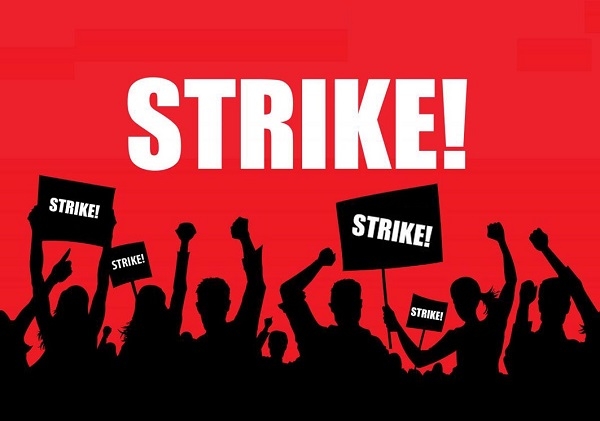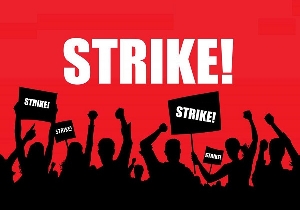Breakdown of the impact on you

 The Organized Labor union has announced a strike starting Monday, July 15, 2024.
The Organized Labor union has announced a strike starting Monday, July 15, 2024.
The Organised Labour union is conducting a nationwide strike in protest against the attempt by the Social Security and National Insurance Trust (SSNIT) to sell its 60 percent stake in four hotels.
On Friday, July 13, the SSNIT called off the sale process of the Rock City Hotel, owned by Agriculture Minister Bryan Acheampong, after the union of trade unions threatened a strike on Monday.
The termination was announced after Rock City Hotel withdrew its offer to acquire SSNIT’s 60 percent stake in the hotels.
Despite this development, the Organised Labour union remains committed to continuing the strike.
Effects of the organized workers’ strike
It serves as an umbrella organization for various trade unions in Ghana, including:
University Teachers Association of Ghana (UTAG), Ghana Medical Association (GMA), Ghana Registered Nurses and Midwives’ Association (GRNMA), Ghana National Association of Teachers (GNAT), National Association of Graduate Teachers (NAGRAT), Public Utility Workers’ Union (PUWU), Civil and Local Government Officers’ Association of Ghana (CLOGSAG), Teachers and Education Workers’ Union (TEWU), Judicial Officers’ Association of Ghana (JUSAG) and Transport, Petroleum and Chemical Workers’ Union.
Since the Organised Labour Party unions represent a significant proportion of Ghana’s public employees, a nationwide strike would have serious consequences for the country’s ailing economy.
The key organisations involved in this movement include the Ghana Medical Association (GMA) and the Judicial Service Staff Association of Ghana (JUSAG).
Impact on court proceedings
The strike risks disrupting the judicial system, leading to delays in court proceedings and a backlog of cases.
This could make access to justice more difficult for many citizens, compromise legal representation and potentially jeopardise the integrity of the justice system.
Impact on healthcare
In the health sector, the strike could affect the provision of essential services.
The involvement of the GMA could lead to strikes that disrupt the operation of hospitals and clinics, particularly emergency services. This would result in poorer patient care and longer waiting times for medical treatment, ultimately having a negative impact on health care.
The education sector, especially higher education, will also be significantly impacted by the strike.
Due to the involvement of the University Teachers Association of Ghana (UTAG), there may be cancellations of classes, interruptions of examinations and a standstill of academic operations at universities.
This disruption may impact students’ learning experience and cause delays in academic progress, potentially affecting the timing of graduation.
In addition, there may also be setbacks in ongoing research projects and the continuation of university administrative functions.
The situation underlines the urgent need for dialogue to address concerns about transparency and accountability in the management of public assets, which are crucial to maintaining the stability of the education system.
In an interview with Citi TV, Dr. Eliasu Mumuni, National Secretary of UTAG, expressed his disappointment and spoke of a breach of trust on the part of SSNIT, which he said ignored the company’s warnings and concerns.
“When Organised Labour issued an ultimatum, the National Pensions Regulatory Authority (NPRA) stepped in and said the transaction would be put on hold. Just when we thought the problem was resolved, it resurfaced and the NPRA gave its approval,” he said.
The unions’ decision to continue the strike underscores ongoing tensions between unions and state institutions over transparency and accountability in the management of public assets.
The potential economic impact of this situation underscores the urgent need for dialogue and resolution between the parties involved to mitigate the impact on the country’s services and workforce.
JKB/AE
Watch the latest episode of Everyday People on GhanaWeb TV below:



